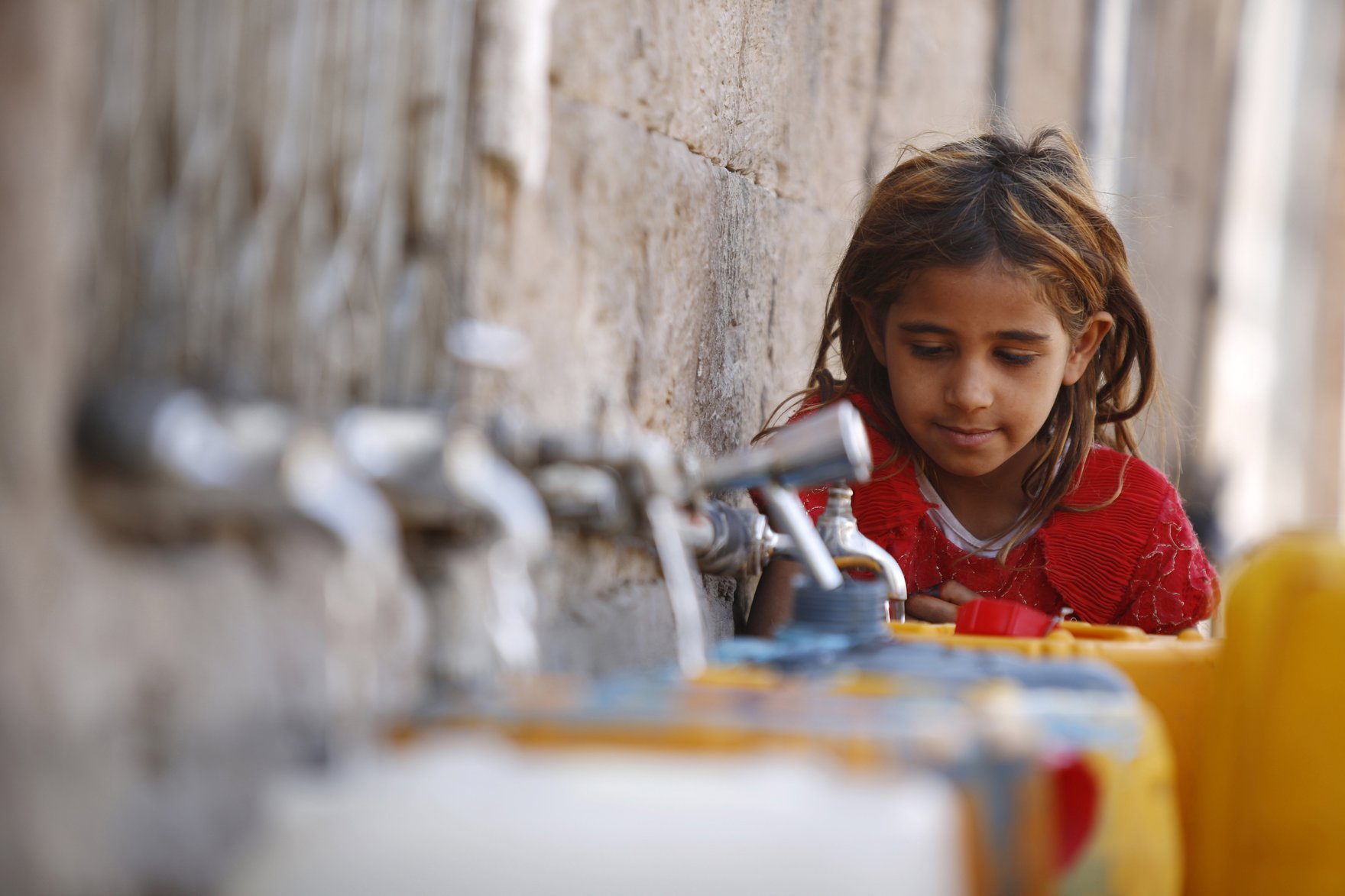As a civil war in Yemen persists, a cholera outbreak in the country is spreading at an unprecedented rate, according to the United Nations, which says that there were more than 35,500 suspected cases of the disease reported in the past three weeks, and 361 deaths. Amid urgent appeals for international assistance, CIGI Research Associate Jacqueline Lopour talks about the underlying connections between conflict, cholera and water security.
CIGI: Can you tell us about the water crisis in the Yemen?
Jacqueline Lopour: More than two years into the Yemeni civil war, the country is facing one of the world’s worst humanitarian disasters. Top of the list for many Yemeni civilians is their lack of access to clean, safe, usable water. Currently, the United Nations estimates that 14.5 million people in Yemen are affected, and with the ongoing conflict and drought, this is only going to get worse.
Even before the drought and conflict, Yemen faced grim challenges relating to water. It was one of the Arab world’s poorest nations and one of the most water-stressed countries in the world. Before the civil war began, experts were warning that the combination of unsustainable agricultural practices and the effects of climate change could result in Yemen becoming one of the first modern countries to run out of usable water.
CIGI: How do these water shortages impact the daily lives of people in Yemen?
Lopour: Clean water is something that people in developed countries often take for granted. For millions in Yemen, clean water is inaccessible or simply too expensive. Over three million Yemenis have been forced from their homes by the conflict, and access to clean drinking water is one of their most critical and immediate needs.
Using unsafe water and substandard hygiene facilities has dire consequences for the health and well-being of civilian populations, especially during times of war. Since October 2016, Yemen has faced an outbreak of cholera — a disease spread by contaminated water. In countries with functioning health systems, cholera patients are treated with oral rehydration solutions, intravenous fluids and antibiotics. However, because of the conflict, Yemen’s health system has utterly collapsed. Many hospitals and clinics have been destroyed or shuttered; those that stay open are overcrowded and are forced to work without even the most basic medicines and treatment options. Safe water and sanitation is critical to preventing outbreaks of cholera and other water-borne diseases.
The conflict has also damaged much of the country’s critical water, sanitation and hygiene infrastructure, exacerbating the problem. In some densely populated areas, a lack of sewage management and waste-water treatment poses a serious health threat. Often, these problems are related to the country’s massive fuel shortages, as there is simply not enough fuel to run water pumps or power other infrastructure.
CIGI: Where does the international community go from here? What can be done about the situation?
Lopour: A year ago, I said that Yemen served as a cautionary tale for the region and the world. Since then, the situation has worsened in almost every way. Yemen has more people in need of humanitarian aid — 18 million — than any other country in the world, including Syria. Malnutrition is on the rise, with millions of Yemenis on the verge of famine. People are dying from preventable and treatable diseases. Over three million people have been forced from their homes. Children are unable to attend schools. And as the fighting rages on, more and more civilians are caught in the crossfire.
UN and other humanitarian workers are seriously underfunded. The UN estimates that it needs approximately US$2.1 billion to provide immediate, life-saving assistance for the Yemeni people. Yet, the international response has been woefully inadequate. The UN has only received 7.3 percent of what it needs, leaving a funding gap of US$1.9 billion. Aid workers are facing tremendous difficulties in reaching some of the most embattled areas, leaving millions without any assistance at all. Just recently, the International Committee of the Red Cross warned that the world had only months to save millions in Yemen and the surrounding region from starvation.
The situation could not be more dire, yet so many in the international community are ignoring the conflict. Yemen needs immediate humanitarian aid. But equally important, we need greater international cooperation to press all actors in the conflict to halt attacks, come to the table, and negotiate a peace settlement. Even once that is achieved, our work is not done. Yemen needs a sustained commitment by the international community to help the Yemeni people recover from war and rebuild their lives and communities.


